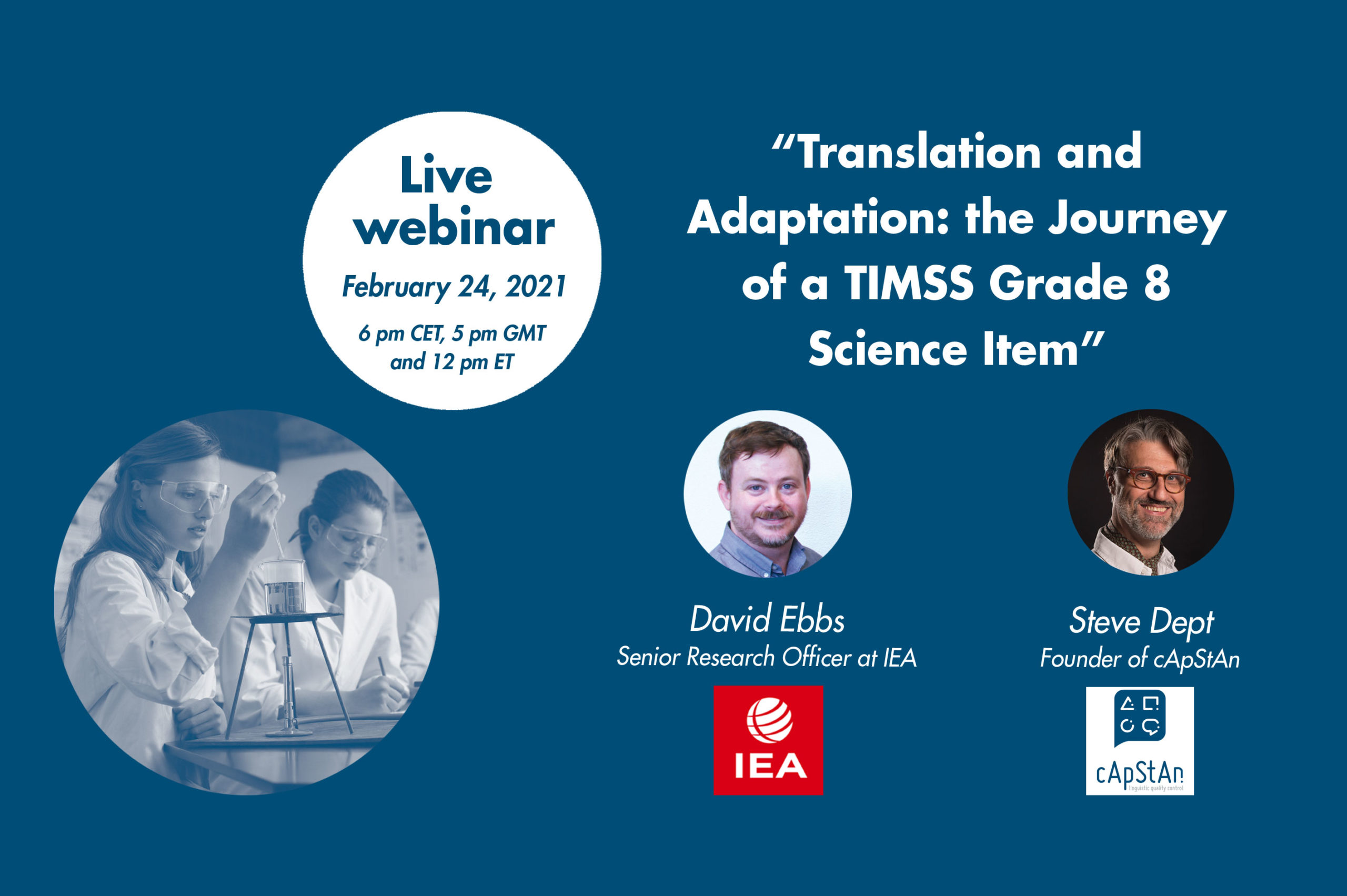
On-Demand Webinar | Translation and Adaptation: The Journey of a TIMSS Grade 8 Science Item
The International Association for the Evaluation of Educational Achievement (IEA) was founded in 1958 and has pioneered international large-scale assessments (ILSAs). IEA studies measure achievement in students worldwide. The outcomes of these studies inform education policies, and the most stringent quality assurance standards apply, from item development to data analysis.
Since 2001, cApStAn Linguistic Quality Control has been working with IEA to ensure comparability across language versions and across countries.
- Literal translations of assessment items may not work well. It may be necessary to deviate from the international source version to maintain equivalence. How can this be monitored?
- How is translation verification different from review or proofreading?
To illustrate this process, we shall look at the life cycle of an actual TIMSS item (Trends in International Mathematics and Science Study).
Watch our On-Demand webinar with David Ebbs, a Senior Researcher at IEA, and cApStAn founder Steve Dept, who will walk you through the development, translation, adaptation and verification cycle of a TIMSS grade 8 science item.
Fill out the form to receive the webinar recording and presentation slides:
About Speakers

David Ebbs, Senior Research Officer at IEA
David Ebbs is a Senior Research Officer at IEA. He coordinates the international translation verification for IEA (TIMSS, PIRLS, ICILS) and non-IEA studies, including the training and re-training of international translation verifiers. He is also involved in the development of the IEA eAssessment system.

Steve Dept, Founder at cApStAn
Steve is one of cApStAn’s founders. He received his education in English, Dutch, French and German but he is essentially an autodidact and a field practitioner. Since cApStAn’s creation in 2000, Steve has supervised linguistic quality assurance in PISA and in multiple large scale surveys and tests. His translatability assessment methodology is applied in various high-stakes projects. Steve is the driving force behind cApStAn’s adaptive strategy.